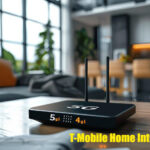Time flies, and no one knows this better than Philips, a brand synonymous with innovation and quality. When you think of reliable timekeeping devices, Philips undoubtedly stands out. Whether you’re looking for a traditional clock or a cutting-edge smart device, Philips has continually set the bar high. Let’s delve into the world of Philips and explore how this iconic company has shaped the realm of timekeeping.
History of Philips
Philips, founded in 1891 by Gerard Philips and his father Frederik, began as a small family business in Eindhoven, Netherlands. Initially focused on manufacturing light bulbs, Philips quickly expanded its repertoire. By the early 20th century, Philips was a household name, known for its high-quality electrical products.
Early Beginnings and Innovations
Philips’ journey into timekeeping started in the mid-20th century. The company saw an opportunity to blend its expertise in electronics with the art of horology, creating innovative and reliable timekeeping devices that catered to a modern audience.
Philips’Entry into Timekeeping
The 1950s marked Philips’ official entry into the world of clocks. Their first models were simple yet efficient, combining sleek design with accurate timekeeping. These initial offerings laid the foundation for what would become a long and successful venture into the timekeeping market.
Philips’ Innovations in Timekeeping
Philips’ commitment to innovation has been a driving force behind its success. The company’s engineers and designers have continuously pushed the envelope, developing timekeeping devices that not only keep time but also enhance the user’s lifestyle.
First Major Breakthroughs
One of Philips’ first major breakthroughs in timekeeping was the introduction of battery-operated clocks. These clocks were more accurate and reliable than their mechanical counterparts, setting a new standard in the industry.
Key Technological Advancements
In the following decades, Philips continued to innovate. The advent of digital technology in the 1970s saw Philips introducing digital clocks that offered unprecedented precision and functionality. Features like alarm settings, backlighting, and compact designs became the norm.
The Evolution of Philips Clocks
From Analog to Digital
The transition from analog to digital clocks marked a significant milestone for Philips. Analog clocks, with their classic charm and mechanical movements, gave way to digital clocks that offered more versatility and user-friendly features.
Notable Clock Models Over the Decades
- PhilipsWake-Up Light Alarm Clocks: Combining light therapy with timekeeping, these clocks mimic the natural sunrise to gently wake users up.
- Philips Digital Wall Clocks: Known for their sleek design and clear display, these clocks are a favorite in both homes and offices.
Philips and the Rise of Smart Clocks
Introduction of Smart Technology
With the rise of smart technology,Philips adapted quickly. The company introduced smart clocks that integrated seamlessly with modern home ecosystems, allowing users to control their clocks via smartphones and voice commands.
Integration with Modern Home Ecosystems
Philips’ smart clocks are compatible with popular home automation systems like Amazon Alexa and Google Home. This integration allows users to set alarms, check the weather, and even control other smart devices, all through their Philips clock.
Popular Philips Timekeeping Devices
Philips Wake-Up Light Alarm Clocks
These clocks are designed to improve sleep quality and morning routines. By simulating a natural sunrise, they help users wake up feeling more refreshed and energized.
Philips Digital Wall Clocks
These clocks are known for their durability, clarity, and sleek design. They often feature large displays, making them easy to read from a distance, and are perfect for any setting, from homes to public spaces.
Philips’ Contribution to Time Management
Time Management Tools and Apps
Philipshas developed various time management tools and apps that complement their timekeeping devices. These tools help users organize their schedules, set reminders, and improve productivity.
How Philips Devices Help in Productivity
By offering reliable and user-friendly timekeeping devices,Philips helps users manage their time more effectively. Features like multiple alarms, timers, and synchronization with other devices ensure that users stay on track throughout the day.
Philips’ Role in Public Timekeeping
Contribution to Public Spaces and Institutions
Philipshas also played a significant role in public timekeeping. Their clocks can be found in schools, hospitals, airports, and other public spaces, where accuracy and reliability are paramount.
Notable Public Clocks and Installations
Some of Philips’most notable public installations include the large clocks in train stations and city centers, which are renowned for their precision and timeless design.
Design Aesthetics of Philips Clocks
The Balance of Form and Function
Philipsclocks are not only about keeping time; they’re about making a statement. The company prides itself on designs that balance aesthetics with functionality, ensuring that each clock is both a beautiful piece of décor and a precise timekeeping instrument.
Design Philosophies Over the Years
Over the years,Philips has embraced various design philosophies, from the minimalist lines of mid-century modernism to the sleek, futuristic designs of today. This diversity ensures that there is aPhilips clock for every taste and style.
Philips Clocks and Sustainability
Eco-Friendly Initiatives
In recent years,Philips has made significant strides in sustainability. The company is committed to reducing its environmental footprint through eco-friendly manufacturing processes and sustainable materials.
Sustainable Materials and Manufacturing Processes
Philipsuses recycled materials wherever possible and ensures that their manufacturing processes are energy-efficient. This commitment to sustainability is reflected in the longevity and quality of their products.
Consumer Feedback and Reviews
General Consumer Sentiments
Consumers generally praise Philipsclocks for their reliability, design, and innovative features. Many appreciate the blend of classic timekeeping with modern technology, makingPhilips a trusted name in households worldwide.
Highlighted Reviews of Popular Models
- Wake-Up Light Alarm Clocks: Users love the gentle wake-up experience, noting improved moods and better sleep quality.
- Digital Wall Clocks: Praised for their clear displays and stylish designs, these clocks are a hit in both home and office settings.
Comparing Philips with Other Brands
Strengths and Weaknesses
Philipsstands out for its innovation, reliability, and design. However, some users find their products to be on the pricier side compared to other brands. Despite this, the quality and durability of Philipsclocks often justify the investment.
Unique Selling Points
What setsPhilips apart is their ability to combine technology with aesthetics. Their clocks are not just timekeepers but also enhance the overall décor of a space while offering advanced features that cater to modern lifestyles.
Future of Philips in Timekeeping
Upcoming Technologies and Models
Philipscontinues to push the boundaries of timekeeping. Future models are expected to incorporate even more advanced smart features, such as AI integration and enhanced connectivity with other smart home devices.
Predictions and Industry Trends
The trend towards smart homes shows no signs of slowing down, andPhilips is well-positioned to lead in this space. We can expect to see more innovative and user-centric designs that cater to the evolving needs of consumers.
Tips for Choosing the Right Philips Clock
Factors to Consider
When choosing a Philipsclock, consider factors such as your specific needs (e.g., alarm features, display size), design preferences, and budget. Philipsoffers a wide range of options, so there’s something for everyone.
Matching Personal Needs and Preferences
Whether you need a reliable alarm clock to kickstart your mornings or a stylish wall clock for your living room, Philips has you covered. Evaluate your lifestyle and choose a clock that complements it.
Conclusion
Philips has made an indelible mark on the world of timekeeping. From their humble beginnings to their current status as a leader in innovative clock design, Philips has consistently delivered products that blend reliability, style, and cutting-edge technology. As we look to the future, it’s clear that Philips will continue to be a major player in the evolution of timekeeping, helping us all stay on track and on time.
FAQs
- What makes Philipsclocks stand out from other brands?
Philipsclocks are known for their innovative features, reliable performance, and stylish designs, making them a preferred choice for many consumers.
- Are Philipsclocks compatible with smart home systems?
Yes, many Philipsclocks are compatible with popular smart home systems like Amazon Alexa and Google Home, allowing for easy integration and control.
- How do PhilipsWake-Up Light Alarm Clocks work?
These clocks simulate a natural sunrise, gradually increasing light intensity to gently wake you up, promoting better sleep and improved mood.
- What sustainable practices does Philipsfollow in manufacturing their clocks?
Philipsuses recycled materials and energy-efficient manufacturing processes to minimize their environmental impact, reflecting their commitment to sustainability.
- What should I consider when buying a Philipsclock?
Consider your specific needs, design preferences, and budget. Philipsoffers a wide range of options to cater to different lifestyles and tastes.











